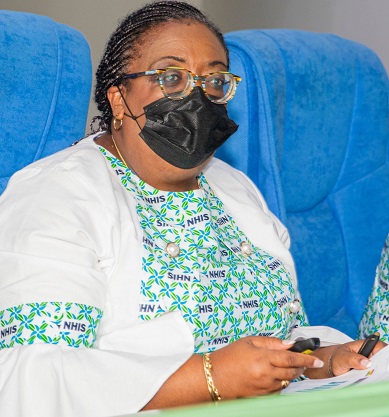
Pregnancy related health services and treatment of non-communicable diseases (NCDs) are the largest cost drivers of the National Health Insurance Scheme (NHIS), a research study has revealed.
It said of nearly 18 million claims valued at GH¢800 million made from the scheme between January 2017 and December 2019, 16 per cent were pregnancy related and 14 per cent, went into NCDs.
Dr Maxwell Antwi, Country Director of Pharm Access Foundation, a non-governmental organisation dedicated to improving quality healthcare on the African region, made this known at a“Data Day” event to mark this year’s NHIS week.
The day sought to leverage on data to identify the gaps and contributions of the NHIS to advancing healthcare in Ghana while strengthening its capacity to be a data-driven health insurer, moving forward.
Findings of the study jointly conducted with the NHIA and the Economics Department of the University of Ghana, indicated that about 48 per cent of patients diagnosed with hypertension or diabetes on their first visit to a health facility failed to attend follow-up visits.
“What we are facing now is not a pandemic of infectious disease but a pandemic of NCDs and because they have a long term effect on our health we need to look at how we can prevent them through the NHIS,” Dr Antwi said.
According to him, while interventions like family planning which has been recently enrolled unto the NHIS would go a long way to prevent unplanned pregnancies and reduce maternal mortalities in the country, it was critical the scheme considered other preventive health benefit packages.
“We need to look at preventive health insurance such that through the NHIS people can access services that are more preventive than curative to reduce debt levels and sustain the scheme,” he urged.
Dr Antwi charged management of the National Health Insurance Authority (NHIA) to accelerate efforts at fully digitalising its claims management systems to address “out-of-pocket payments.”
“There need to be a benchmark for key indicators, for instance, tracking and tracing referred prescriptions, rational use of medicines like antibiotics and how they are administered especially at the lower tier facilities, among others so that we can position the NHIS to be a healthcare gatekeeper,” he stated.
Chief Executive Officer of the NHIA, Dr Lydia Dsane-Selby in an address said although 80 per cent (24.4million) of the Ghanaian population were registered unto the NHIS, only 16 million were active.
She said the largest active members were those under 18 years (45 per cent) followed by people working in the informal sector (39 per cent) and indigents (9 per cent) respectively.
Contributors and pensioners on the Social Security and National Insurance Trust (SSNIT) were the least active members.
Giving a further breakdown per regions, the Bono, Upper West, Upper East, Ahafo and Bono East had the most active membership while, the Western, Central, Greater Accra, Northern and Oti were the regions with the lowest active members.
Dr Selby insisted that per the National Health Insurance Acts 650 (2003) and 852 (2012), it was mandatory that all Ghanaians registered onto the scheme and implored all and sundry to comply as the country strives to attain Universal Health Coverage (UHC).
“For Ghana, we have defined UHC as all people having timely access to high quality health services irrespective of ability to pay at the point of use and as an Authority, we are committed to this agenda.
The NHIS is the vehicle and road on which UHC drives and with the measures we are beginning to put in place, we can confidently say that UHC in 2030 is not a mirage; it is achievable.”
BY ABIGAIL ANNOH





